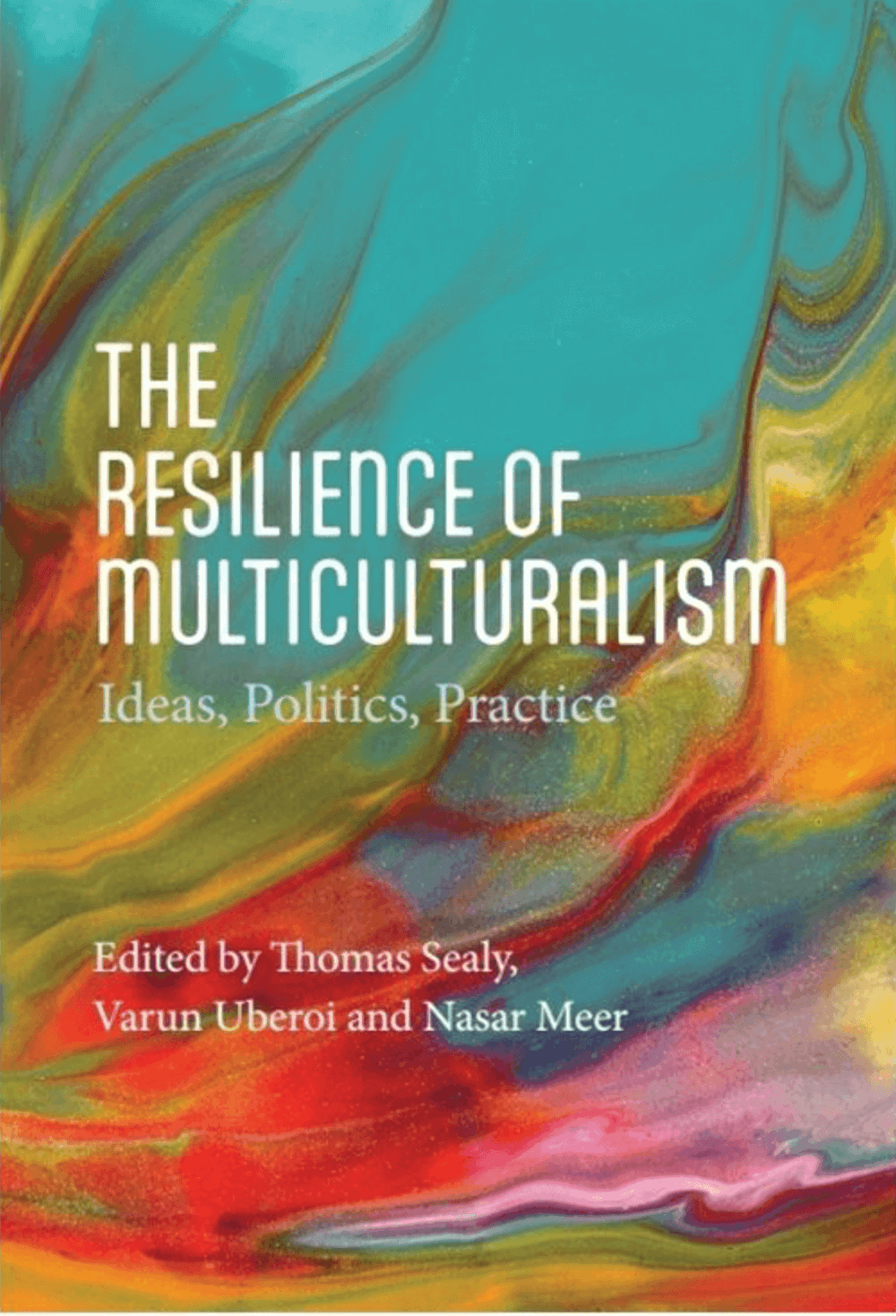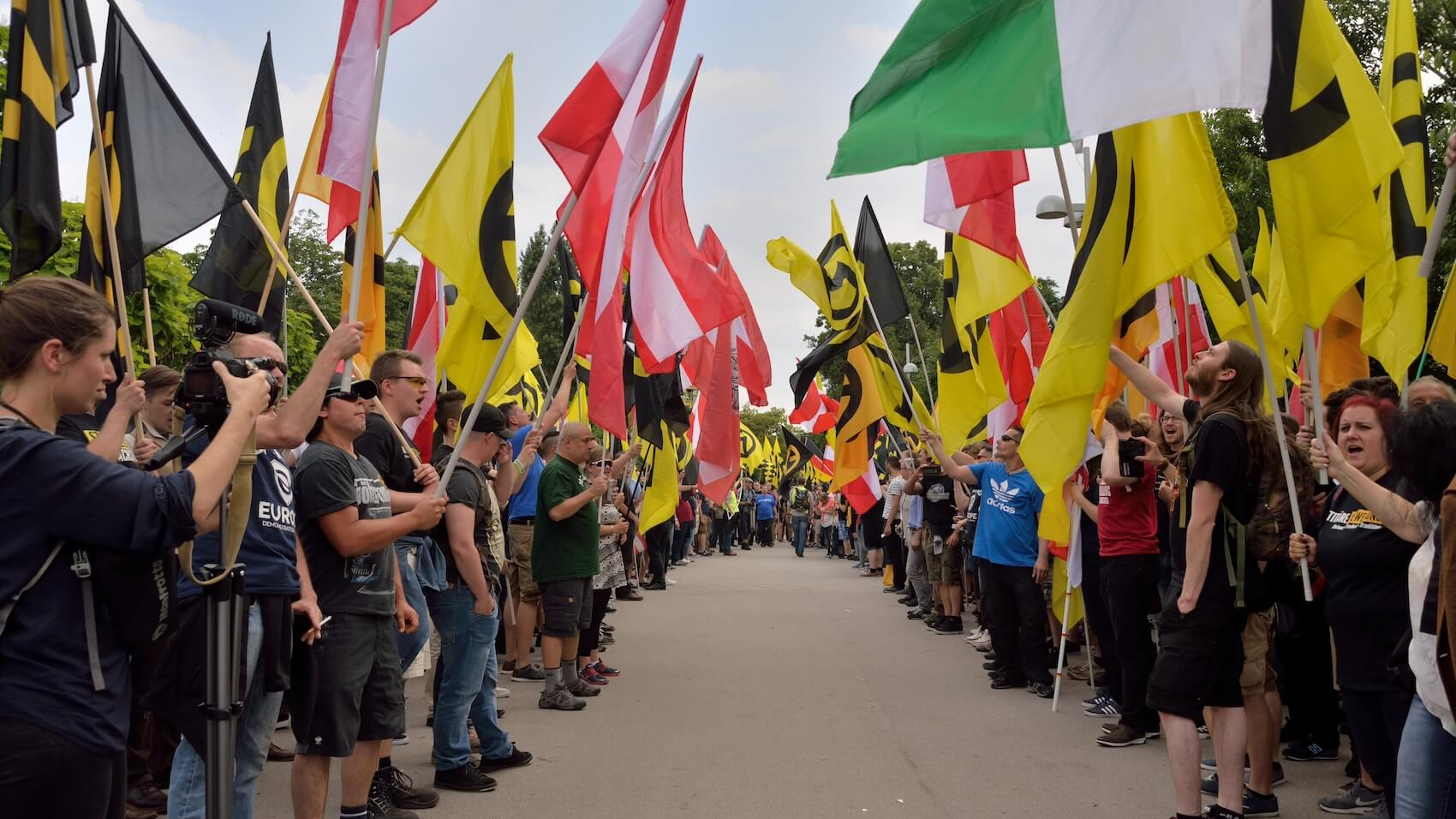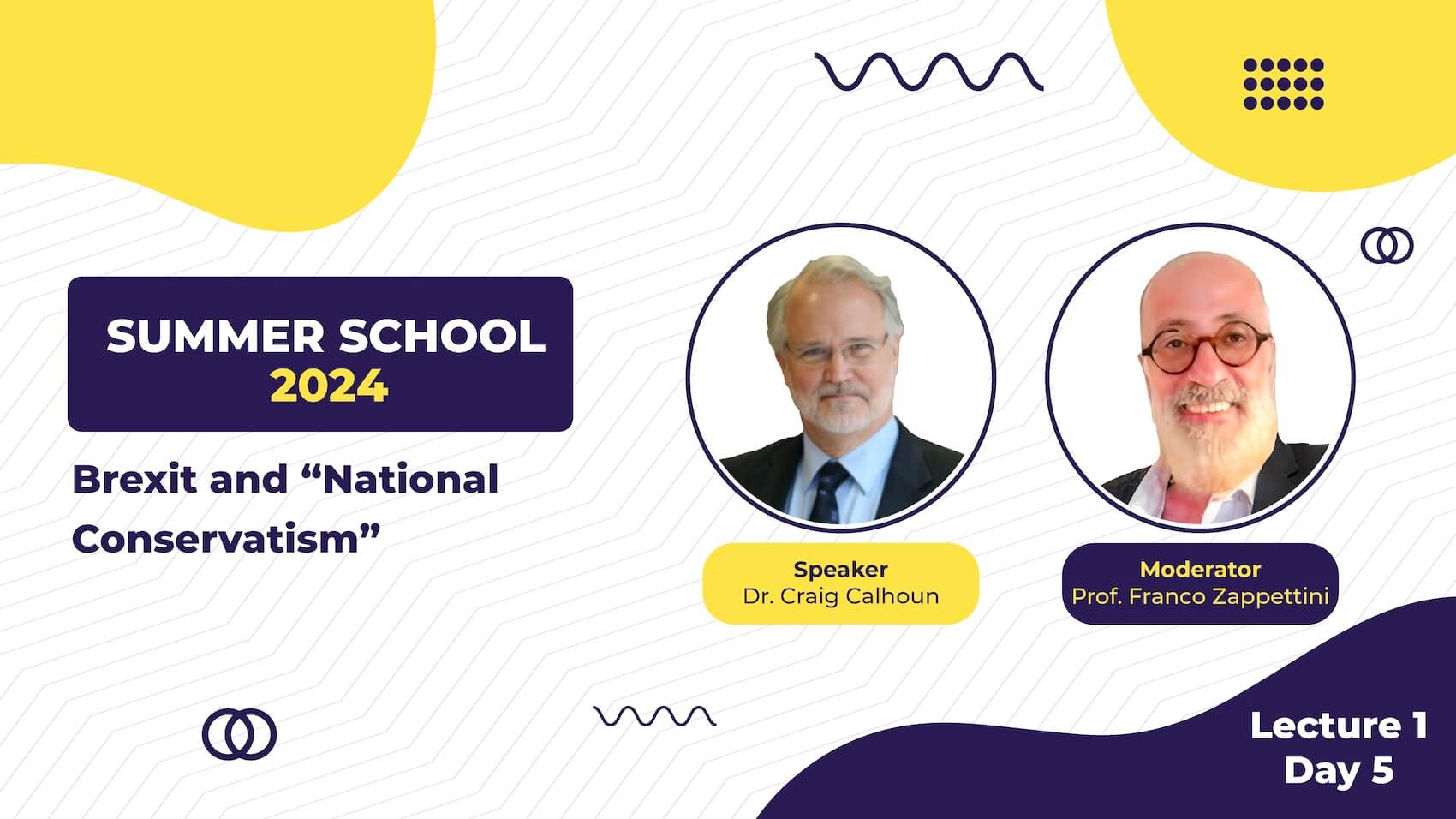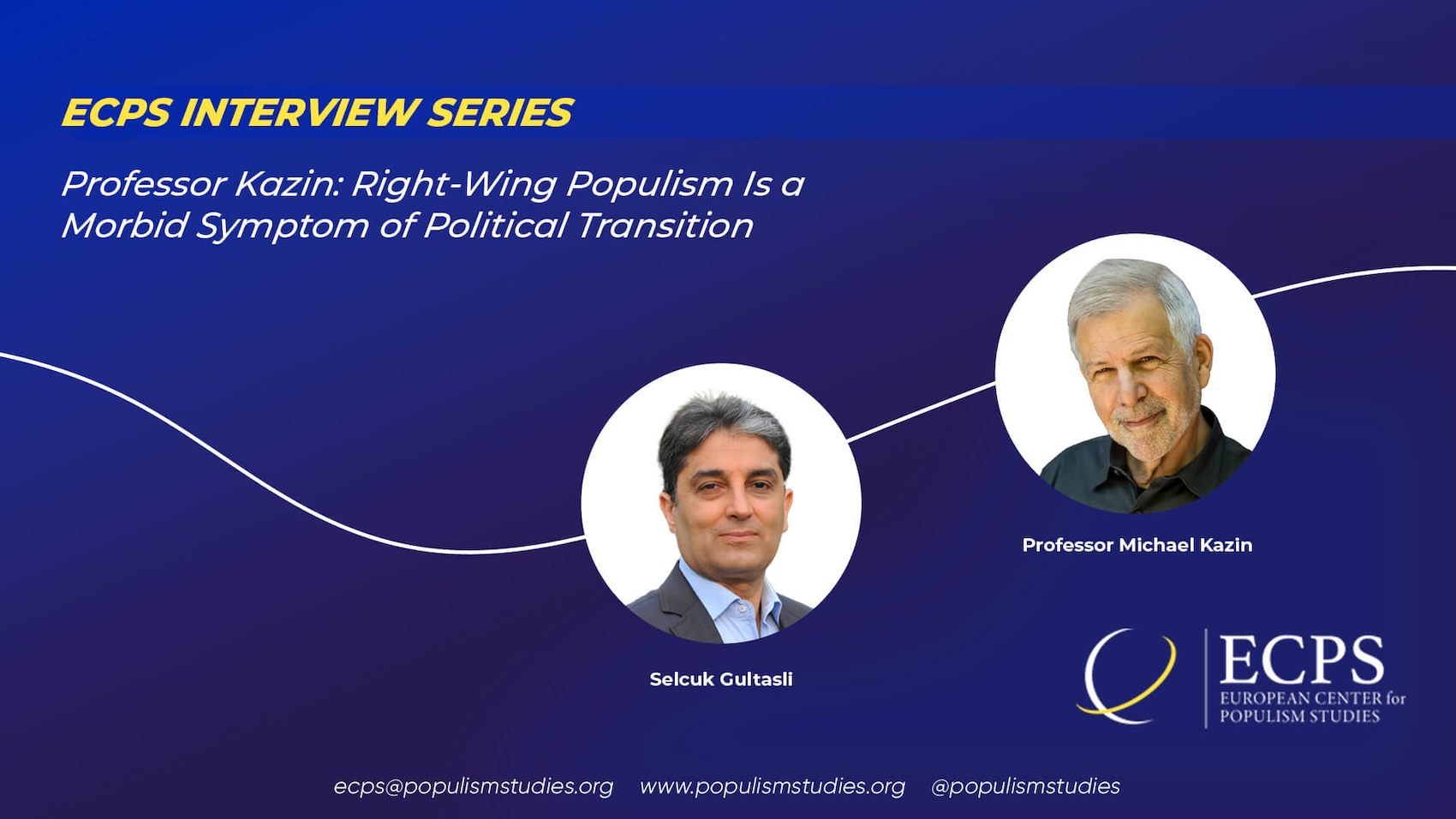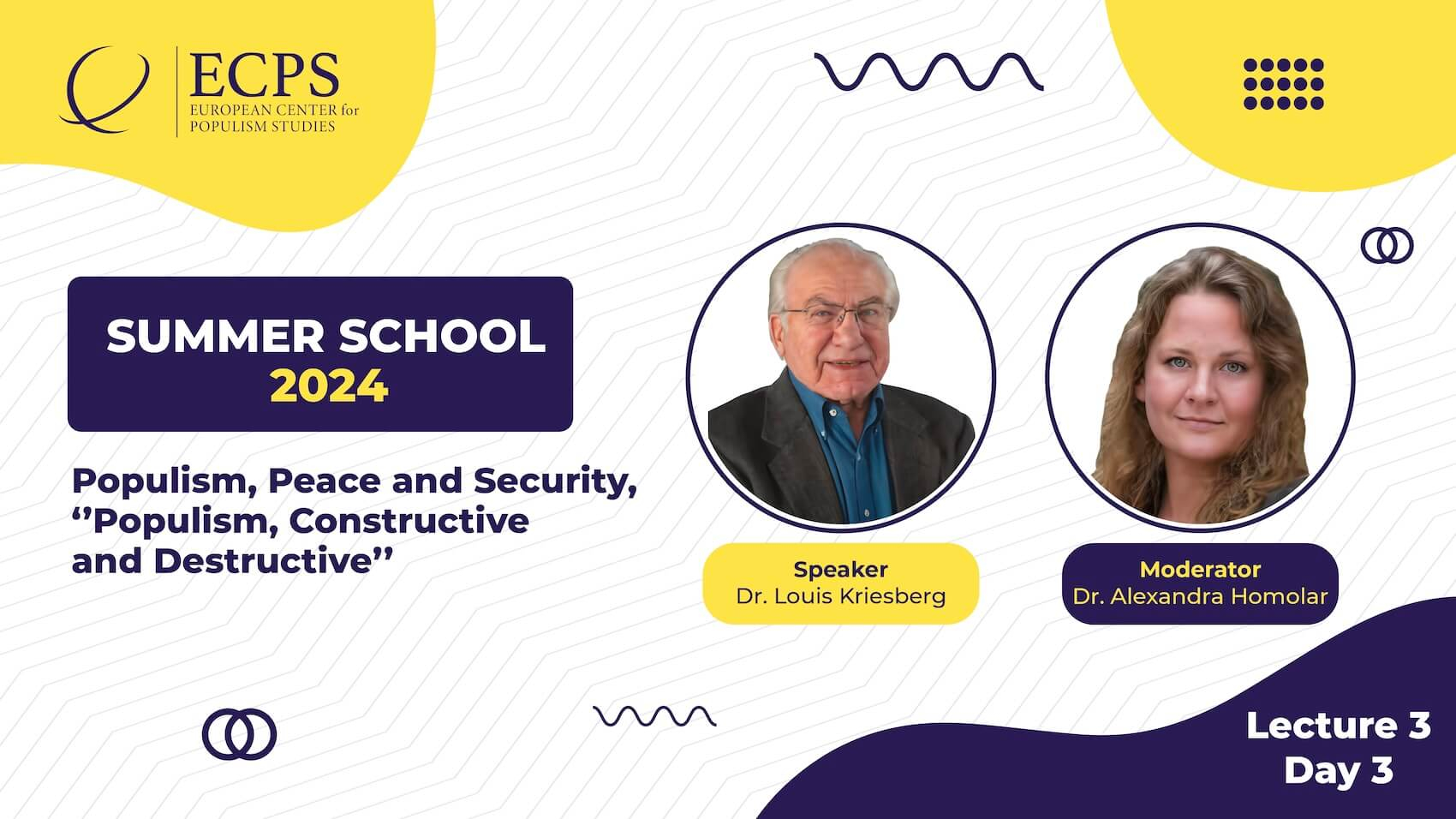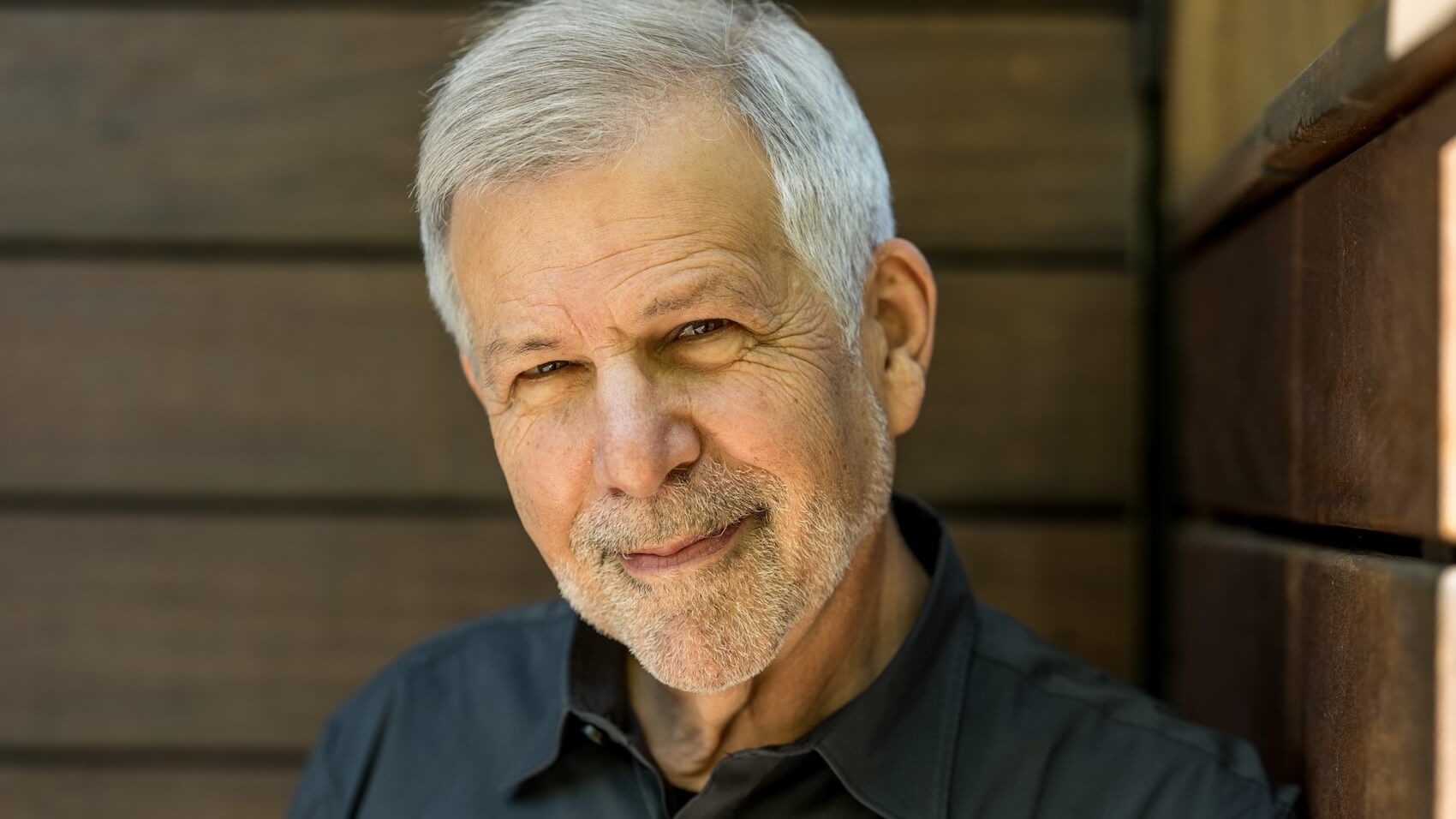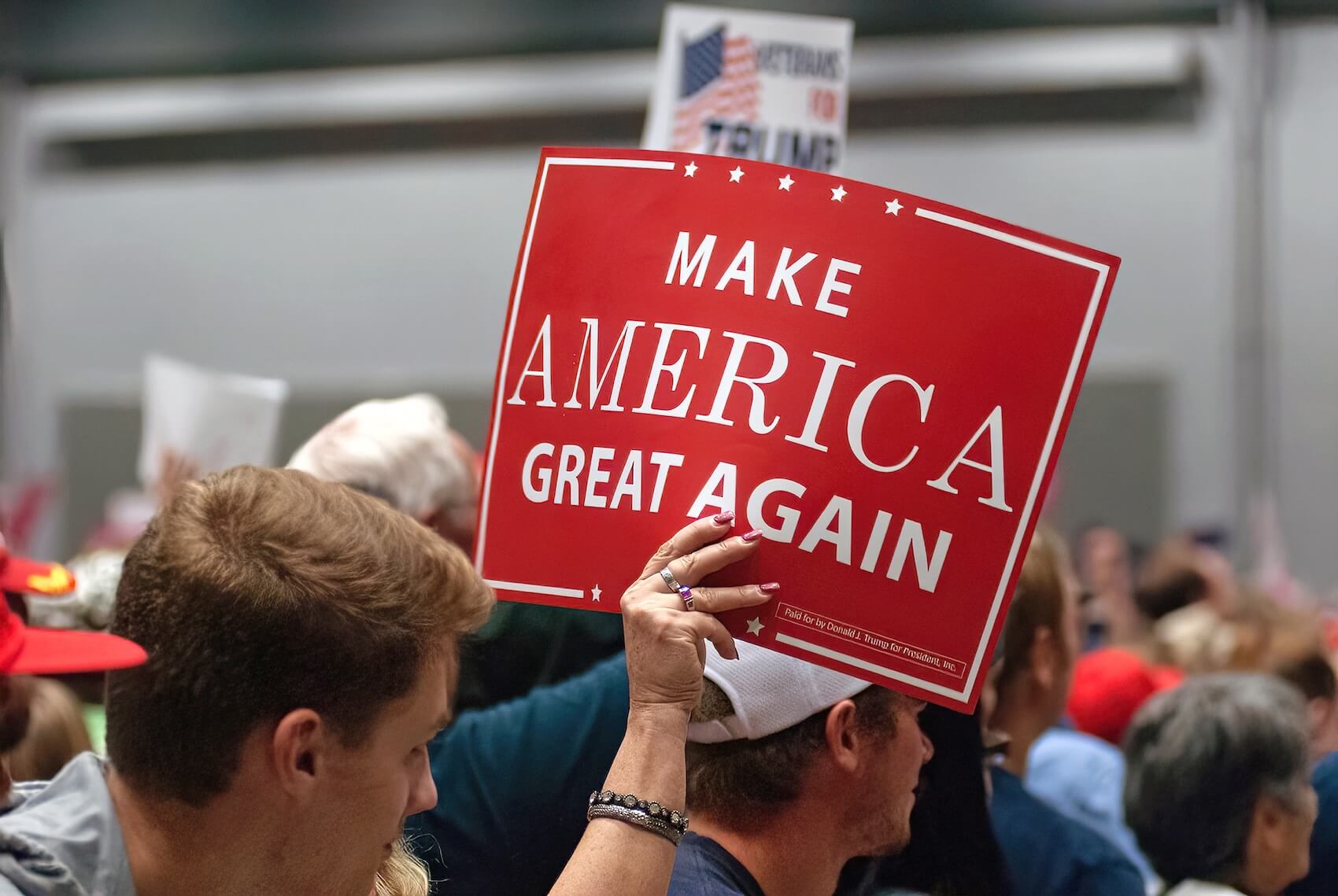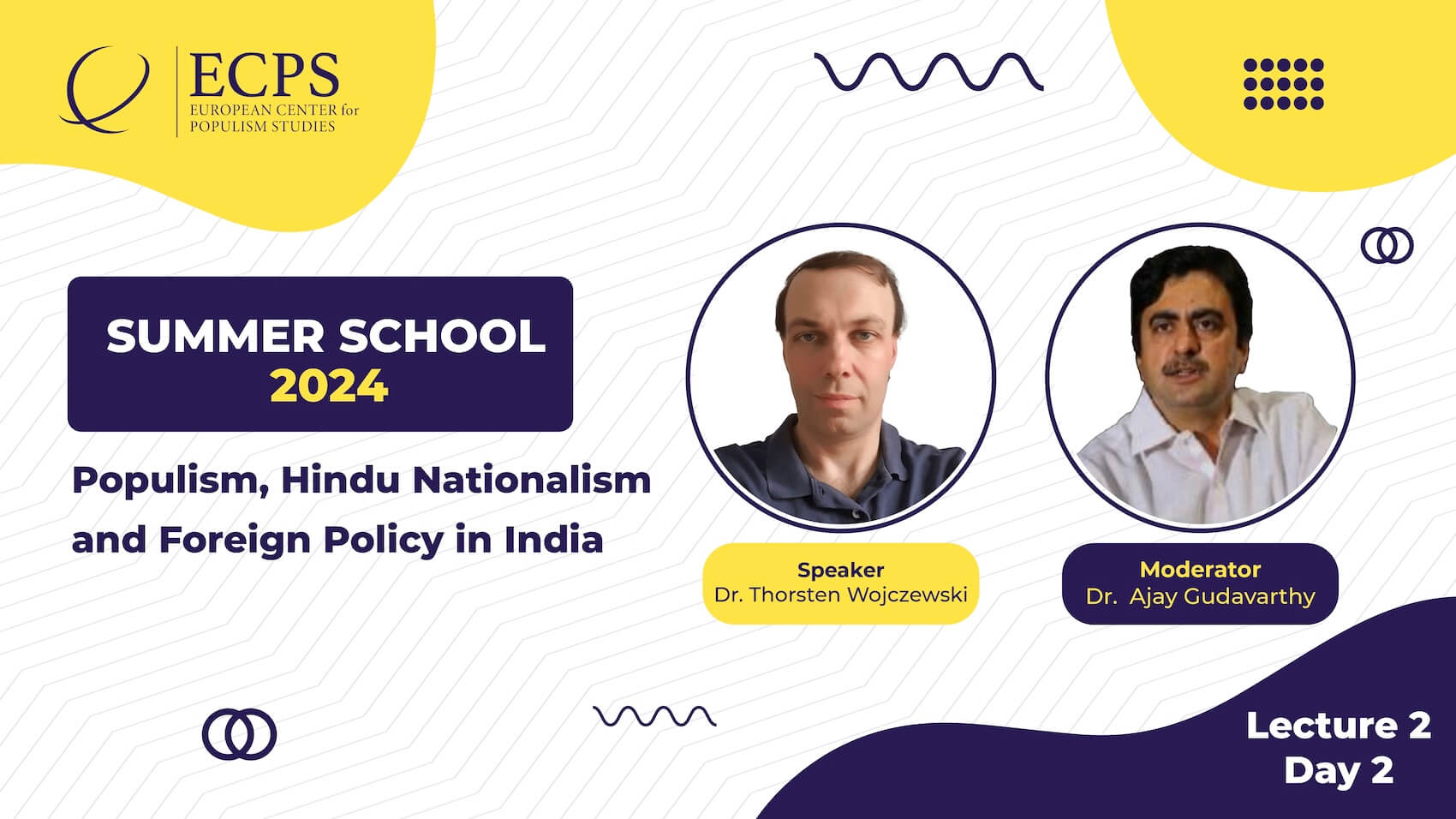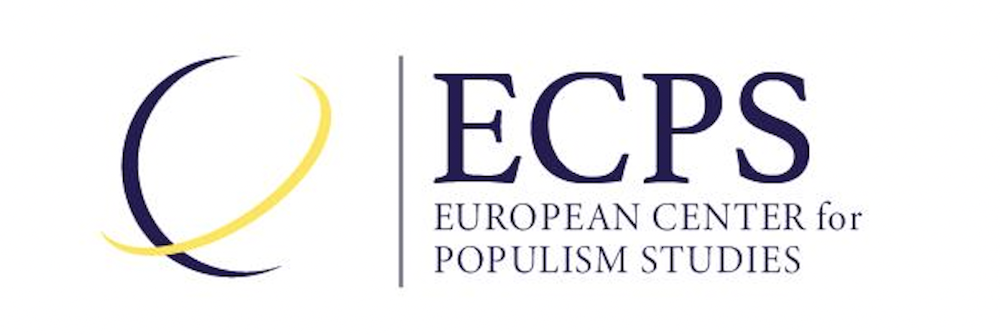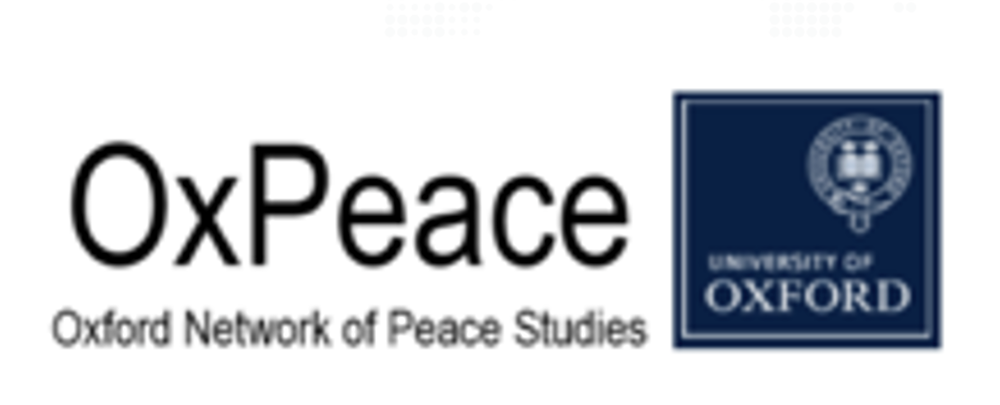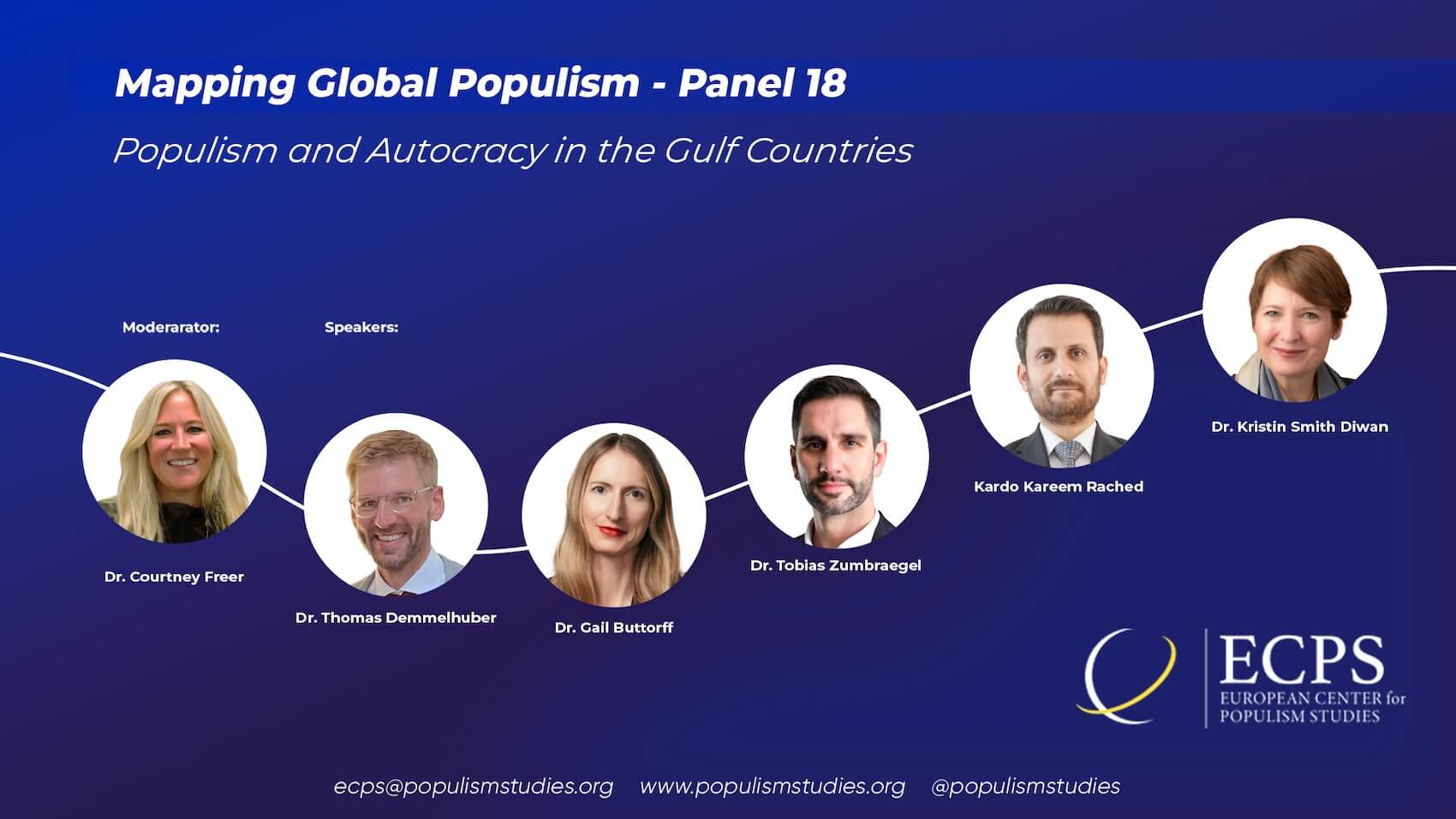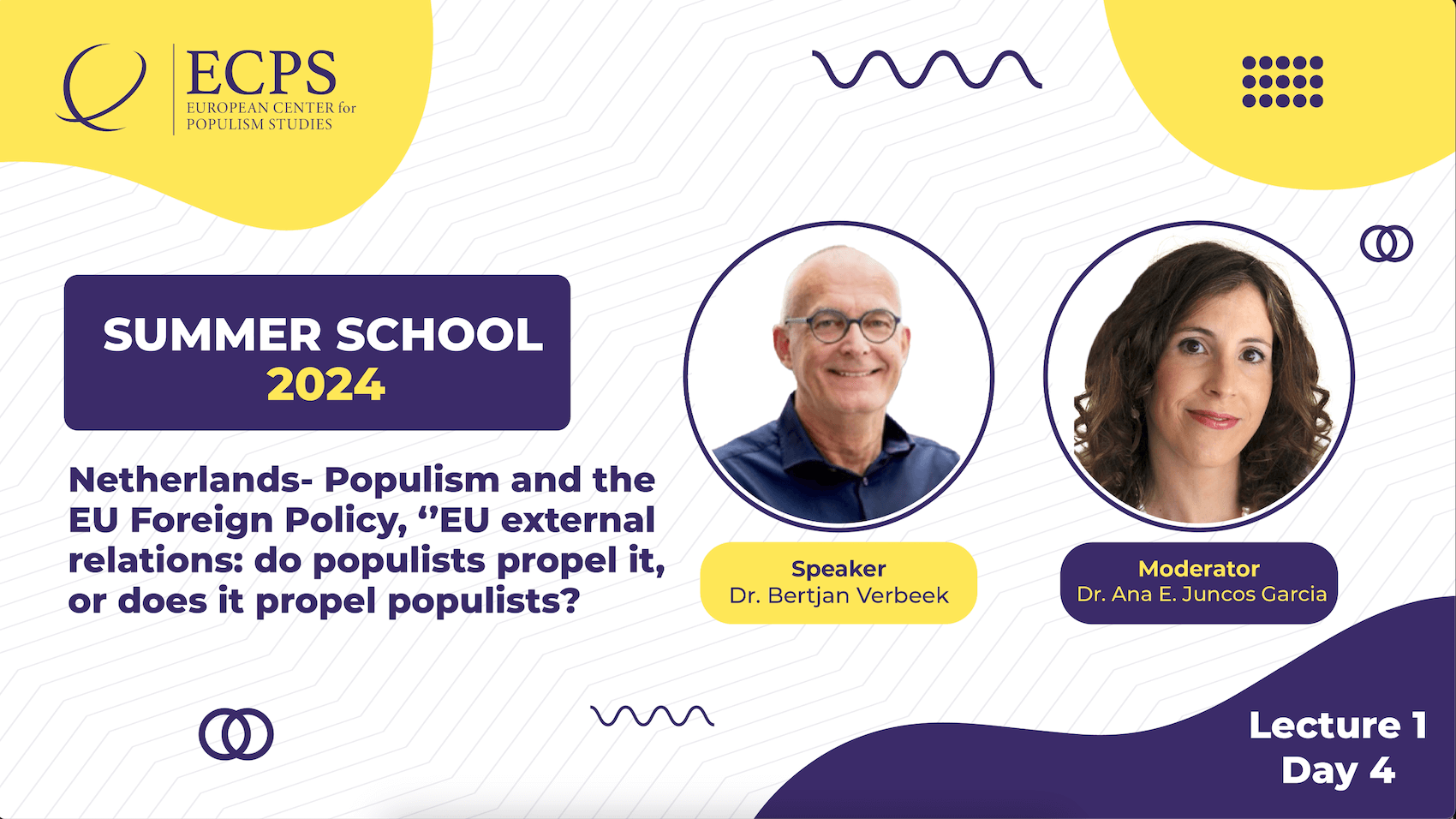Kenes, Bulent. (2024). “The Resilience of Multiculturalism: Ideas, Politics and Practice — Essays in Honour of Tariq Modood.” ECPS Book Reviews. European Center for Populism Studies. December 26, 2024.https://doi.org/10.55271/br0024
Tariq Modood’s groundbreaking work on multiculturalism is celebrated in this volume, highlighting his transformative contributions to the field. Through the concepts of “multicultural nationalism” and “moderate secularism,” Modood offers a sophisticated framework that harmonizes diverse identities with a cohesive sense of national belonging. Edited by Thomas Sealy, Varun Uberoi, and Nasar Meer, the book tackles pressing challenges such as populism, globalization, and transnationalism, while situating Modood’s legacy within global debates on identity and citizenship. Although the collection’s depth and interdisciplinary scope are impressive, its Western-centric focus somewhat limits its comparative applicability. Nonetheless, this volume is an indispensable resource for advancing multiculturalism as a counter to the populist radical right in both theory and practice.
Reviewed by Bulent Kenes
The connections between populist radical right ideologies and racism, nativism, nationalism, welfare chauvinism, anti-immigration sentiment, Islamophobia, and anti-minority discourses, actions, and policies are undeniable. One potential countermeasure to this form of homogenizing cultural and racial populism is the establishment of a robust framework for multiculturalism, cultural hybridity, and heterogeneity. This framework should uphold and guarantee individual and collective rights and freedoms, both to and from, for minority groups and peace and comfort for dominant majority culture.
In this context, the contributions of Tariq Modood have garnered significant attention. The European Centre for Populism Studies (ECPS) has recognized the relevance of his work and decided to publish a review of the book The Resilience of Multiculturalism: Ideas, Politics and Practice: Essays in Honour of Tariq Modood. Edited by Thomas Sealy, Varun Uberoi, and Nasar Meer, this volume explores and celebrates Modood’s influential ideas on multiculturalism and its practical implications in contemporary society.
The book serves as a tribute to Tariq Modood’s substantial contributions to the theory and practice of multiculturalism. It offers a wide-ranging exploration of multiculturalism as a concept that continues to evolve, addressing contemporary issues of identity, inclusion, and diversity in diverse societies. Divided into four thematic sections—philosophical orientations, diversity and inclusion, nationalism and transnationalism, and secularism—the book includes contributions from eminent scholars across these fields.
The chapter “Introduction: Modoodian Multiculturalism,” co-authored by the book’s editors, explores Modood’s influential contributions to multiculturalism, situating his ideas within global debates on identity, citizenship, and diversity. It emphasizes Modood’s interdisciplinary approach, blending political theory with sociology to address evolving multicultural challenges. Contextualizing critiques and the perceived decline of multiculturalism, particularly amid populist narratives, cultural “wars,” and political skepticism, the editors highlight its resilience as both a policy and theoretical framework. They underscore multiculturalism’s relevance in tackling racial and ethnic justice, as reflected in movements like Black Lives Matter and indigenous rights debates.
The chapter delves into Modood’s key contributions, particularly his formulation of “Modoodian multiculturalism,” integrating sociological insights with normative political theory. Central concepts include ethno-religious identities and cultural racism, addressing gaps in traditional anti-racism and secularist paradigms. Modood’s advocacy for plural anti-racism and “multicultural nationalism” is pivotal, proposing an inclusive reshaping of national identities to foster minority belonging. By articulating Modood’s innovative approaches to recognition, inclusion, and national belonging, the chapter situates his work as vital to advancing multiculturalism in theory and practice. It effectively introduces the volume, tracing Modood’s intellectual legacy and global relevance, while setting the stage for thematic explorations of multiculturalism’s enduring significance.
In the chapter “Invoking the Idealist World of Ideas,” David Boucher explores Modood’s intellectual engagement with British idealism, particularly the philosophies of Michael Oakeshott and R.G. Collingwood. Boucher highlights how Modood’s grounding in idealist traditions informs his conception of multicultural citizenship, shaping his interdisciplinary synthesis of political theory and sociology. Boucher argues that Modood’s work embodies a “world of ideas” rooted in Collingwood’s hierarchical and overlapping forms of experience and Oakeshott’s philosophical skepticism toward rigid abstraction. Modood’s rejection of the categorical separation between theory and practice, derived from Collingwood, becomes central to his critique of Oakeshott’s anti-essentialism and his emphasis on identity as dynamic and contextual rather than fixed. This conceptual orientation allows Modood to address the practical challenges of multiculturalism while remaining philosophically rigorous.
Boucher demonstrates how Modood adapts the idealist framework to contemporary issues of multiculturalism, such as identity, cultural continuity, and anti-racism. The author also situates Modood’s contributions within a broader philosophical revival, emphasizing his alignment with the idealist principles of “identity in difference” and “continuity through change.” Ultimately, Boucher’s analysis underscores the enduring influence of British idealism on Modood’s theoretical and practical engagement with multicultural citizenship, offering valuable insights into the philosophical underpinnings of his work.
In chapter titled “Intimating or Iterating? Modood on Contextualism and the Danish Cartoons of Muhammad,” Sune Lægaard critically evaluates Tariq Modood’s iterative contextualist methodology through the lens of the Danish Cartoon Affair. Lægaard examines the tensions between Modood’s stated commitment to contextual sensitivity and the practical application of this methodology in his writings on the controversy. Lægaard acknowledges Modood’s contextualism as a theoretically rich approach, particularly in its sensitivity to local norms and iterative refinement of general principles. However, he raises concerns about the selective nature of Modood’s contextual engagement. For instance, Modood’s interpretation of the cartoons, particularly the “bomb-in-the-turban” cartoon, is critiqued for privileging one interpretation—Muslims as targets of racism—while neglecting the cartoonists’ stated intentions, such as criticizing extremism. Lægaard argues that this selective framing undermines Modood’s broader claim to contextual neutrality.
Further, Lægaard challenges Modood’s use of analogies, such as Holocaust denial laws, to justify restrictions on speech targeting Muslims. He points out inaccuracies in Modood’s application of Danish blasphemy and hate-speech laws, which already protected religious groups, including Muslims, thereby questioning the relevance of Modood’s arguments in this specific case. While Lægaard commends the adaptability of Modood’s contextualism, he highlights methodological inconsistencies that weaken its application. These critiques underscore the challenges of balancing context-sensitive analysis with normative commitments in political theory. Lægaard’s analysis reinforces the need for greater precision in contextual methodologies, even as he acknowledges the enduring value of Modood’s broader theoretical contributions.
Simon Thompson’s chapter, “Tariq Modood and the Politics of Recognition,” provides a critical exploration of the role of recognition in Modood’s theory of multiculturalism. The chapter positions recognition as a cornerstone in Modood’s intellectual framework, especially in understanding and addressing the dynamics of multicultural societies. Thompson organizes his analysis around four themes: equality, identity, struggle, and inclusion. He commends Modood for his dual conception of equality—equal dignity and equal respect—and his emphasis on the interplay between individual and group recognition. Thompson also highlights Modood’s nuanced focus on ethno-religious identities, which distinguishes his work from traditional liberal multiculturalist theories. Further, he underscores Modood’s dynamic understanding of identity as a dialectical process shaped by insider self-ascriptions and outsider perceptions, framing struggles for recognition as central to addressing misrecognition and exclusion.
However, Thompson raises critical concerns about Modood’s framework. He critiques the lack of practical guidance on when and how to apply equal dignity versus equal respect and calls for a more robust metric to navigate this distinction. Additionally, he notes Modood’s relative neglect of socio-economic inequalities, arguing that a comprehensive theory of justice should integrate both multicultural and economic dimensions. Thompson also challenges the ambiguity in Modood’s conceptualization of group recognition, urging greater clarity about whether groups deserve recognition for their intrinsic value or for the sake of their members. Nevertheless, Thompson’s critique is constructive, acknowledging Modood’s valuable contributions while suggesting areas for further refinement.
In chapter titled “What’s to Be Done? Reuniting the People,” Charles Taylor engages with the divisive impact of exclusionary populism, proposing inclusive frameworks to reconcile societal divisions and foster cohesion. Taylor’s chapter is a robust examination of how modern democracies, fractured by inequalities and identity politics, might navigate towards unity through redefining national identity and embracing multicultural and intercultural narratives. Taylor’s analysis is compelling in its multi-faceted approach, identifying the dual fissures in contemporary democracies: the elite-populist divide and the tensions arising from cultural or ethnic differences. He underscores the need for democracies to craft inclusive political identities that honor both equality and historical narratives of national identity. His advocacy for interculturalism, particularly as a counterpoint to misinterpretations of multiculturalism in Europe, provides a roadmap for societal integration, emphasizing dialogue, collaboration, and a rejection of exclusionary policies. However, the chapter is not without shortcomings. Taylor’s solutions, while idealistic and principled, lack concrete mechanisms for implementation, particularly in polarized contexts where identity politics dominate public discourse. His reliance on examples like Canada and Quebec, while illustrative, may not translate seamlessly to societies with entrenched histories of racial and cultural strife, such as the US or France. Furthermore, his critique of exclusionary populism occasionally underplays the structural forces that sustain such ideologies.
In the chapter titled “The Unfinished Tasks of Multiculturalism: Thinking of Multiculturalism, Thinking with Tariq Modood,” Gurpreet Mahajan presents a thorough exploration of Modood’s contributions to multicultural political theory, with a specific focus on the interplay between multiculturalism, religion, and secularism. Mahajan highlights Modood’s approach to integration, which emphasizes the positive recognition of diverse identities, and his advocacy for reframing secularism as compatible with multicultural principles. This chapter stands out for its systematic articulation of “unfinished tasks” within multicultural discourse, inviting further scholarly and public engagement.
Mahajan effectively foregrounds the complexity of Modood’s argument that religion should be seen as a “public good,” thus challenging rigid secularist frameworks and pushing for inclusive policies that integrate minority religious perspectives into public life. However, this proposition raises critical questions regarding the balance between accommodating religious identities and maintaining secularism’s neutrality, especially in contexts where religious orthodoxy may conflict with liberal values. A notable strength of Mahajan’s analysis is her critique of multiculturalism’s perceived alignment with religious resurgence, which has alienated left-liberal allies. She also underscores the need for deeper engagement with intra-group inequalities and the homogenizing tendencies of identity-based discourses. While Mahajan successfully identifies pressing challenges for multiculturalism—such as inter-minority conflicts and the methodological tensions of de-essentializing communities—the chapter could benefit from more concrete proposals to address these gaps.
In her chapter titled “From the Race Relations Act 1968 to the Great Repeal Act 2018: Back to Square One in 50 Years?” Maleiha Malik presents a deeply analytical and historically grounded examination of the evolution of race relations in the UK, juxtaposing the promise of legislative progress with the regressive realities that culminated in Brexit. Malik’s work underscores the enduring influence of Britain’s imperial legacy on contemporary racial hierarchies, connecting colonial governance to modern racialized exclusion. Her critique of the Race Relations Act (RRA) 1968 reveals its limitations in addressing structural racism, focusing instead on individual acts of discrimination, a pattern that persists through subsequent legal frameworks.
Malik’s critique of Brexit as a racially charged political project is particularly compelling. She argues that populist rhetoric glorifying the British Empire masked the exclusionary nationalism that defined the Leave campaign, fueling a backlash against migrants and minority communities. Her analysis highlights how cultural and religious discrimination—especially Islamophobia—has evolved, amplifying new forms of racialization beyond traditional categories of color or ethnicity. While Malik’s historical framing is powerful, her portrayal of race relations legislation as consistently undermined by nativist anxieties invites further exploration of successful counter-movements. Moreover, her reliance on Brexit as a focal point risks overshadowing broader trends in global populism and anti-immigrant sentiment. Overall, Malik’s chapter is a robust critique of Britain’s struggle to reconcile its imperial past with a truly inclusive multicultural future, urging renewed efforts to combat the structural legacies of racism.
In “Multicultural Nationalism as an Ethics of Social Membership,” Will Kymlicka offers an exploration of the interplay between multiculturalism and nationalism, presenting a potential reconciliation through the concept of “multicultural nationalism.” Drawing from T.H. Marshall’s citizenship framework, Kymlicka contends that national solidarity and multicultural inclusion can coexist by redefining shared societal membership in pluralistic terms. His argument builds on empirical data, highlighting both opportunities and challenges in fostering an inclusive national identity. Kymlicka’s analysis is commendable for addressing the perceived incompatibility between nationalism and multiculturalism. His argument that membership rights can act as a vehicle for inclusivity resonates with Modood’s advocacy for multicultural nationalism. However, the chapter also critically acknowledges the risks inherent in Marshallian politics, particularly its historical tendency to marginalize minorities and reinforce societal hierarchies. The discussion on majority perceptions of minority commitment adds a critical dimension, revealing how perceptions influence support for minority rights. However, this approach risks oversimplifying minority identities and aspirations by framing their inclusion primarily in terms of majority acceptance. Populism surfaces implicitly, as Kymlicka critiques nationalism’s potential for exclusion while emphasizing its capacity for solidarity.
In chapter titled “Integrating Modood and Kymlicka on National Inclusion,” Geoffrey Brahm Levey undertakes a critical analysis of Modood’s multicultural nationalism and Kymlicka’s liberal nationalism, arguing for a synthesis that leverages the strengths of both approaches to foster inclusive democracies. Levey critiques Kymlicka’s dismissal of significant differences between the two frameworks, as well as Modood’s assertion of the superiority of multicultural nationalism, ultimately advocating for an integrative model. Levey highlights Kymlicka’s recalibration of his cultural rights framework to emphasize minority contributions to society as a means of fostering solidarity. However, he critiques this shift for placing undue responsibility on minorities while neglecting structural adjustments required from majority groups. Similarly, he challenges Modood’s reliance on top-down transformations of national identity, arguing that such efforts often provoke resistance and caricature rather than fostering inclusion. The chapter engages with populism indirectly, critiquing majoritarian tendencies to frame minorities as undeserving or disloyal, which underpins populist rhetoric. Levey’s proposed integration of liberal and multicultural nationalism emphasizes concrete protections for minorities alongside a gradual reshaping of national identity through inclusive symbols and narratives. Levey’s analysis offers valuable insights into multicultural theory, though it underscores the challenges of balancing theoretical ideals with pragmatic strategies for fostering social cohesion.
Riva Kastoryano explores the complexities of transnationalism and its implications for nationalism and multiculturalism in her chapter titled “Transnational Experiences: Redefining Solidarity and Nationalisms.” She critiques state-centric multicultural policies, arguing that transnational belonging fundamentally reconfigures traditional nationalist paradigms by fostering non-territorial solidarities that challenge bounded national identities. Kastoryano draws on historical frameworks, such as Randolph Bourne’s concept of a “transnational America,” to contextualize modern transnational dynamics. She contrasts the civic integration goals of multicultural nationalism, as articulated by Modood, with the deterritorialized identities emerging from transnational networks. This juxtaposition highlights a tension: while multicultural nationalism seeks to integrate diverse groups within a nation-state framework, transnationalism transcends borders, creating new, imagined communities and solidarities based on shared identities or causes.
A key criticism is that state-driven multicultural nationalism may fail to address the non-territorial and fluid identities fostered by globalization. Kastoryano underscores the rise of “diaspora politics,” where states and transnational actors negotiate identities and allegiances, sometimes reinforcing exclusionary or populist discourses. She critiques the resurgence of ethno-cultural nationalism, often rebranded as populism, for exploiting migrants’ transnational solidarities as perceived threats to national sovereignty. Kastoryano’s chapter is a significant contribution to understanding the intersections of globalization, identity, and nationalism.
Anna Triandafyllidou’s chapter “What Can Migration and National Identity Look Like in the Mid-Twenty-First Century? Transnational Diasporas and Digital Nomads” examines the interplay of migration, digital technologies, and national identity, projecting forward into the mid-21st century. By bridging physical and virtual mobility, she explores how these evolving dynamics redefine notions of belonging, identity, and citizenship. The chapter reflects on theoretical frameworks like Modood’s multicultural nationalism, plural versus neo-tribal nationalism, and everyday nationhood, questioning their applicability in an era shaped by augmented reality and digital nomadism.
Triandafyllidou identifies a dichotomy between “cosmopolitan nomads,” who navigate globalized systems with ease, and “vagabonds,” marginalized by restrictive migration policies. She underscores the challenge of integrating virtual mobility into theories of migration and identity, noting its potential for both fostering transnational solidarity and amplifying socio-political exclusions. Particularly compelling is her discussion of neo-tribal nationalism, which thrives in the echo chambers of social media, reflecting the populist exploitation of mobility-induced anxieties. While the chapter is innovative in situating digital and physical mobility within broader global transformations, criticisms arise from its speculative tone and lack of empirical substantiation regarding the identity negotiations of digital nomads. Furthermore, the potential environmental and ethical implications of such mobility remain underexplored. Nevertheless, Triandafyllidou’s work opens critical pathways for rethinking nationalism and migration in an increasingly digitized and interconnected world.
Cécile Laborde’s chapter “Rethinking Race and Religion with Rawls and Modood” engages in a critique and synthesis of John Rawls’s and Modood’s perspectives on race and religion, proposing an interpretive framework that seeks to reconcile their divergent approaches. Laborde highlights the limitations of Rawls’s “bifurcated view,” which treats race and religion as separate normative categories rooted in distinct sociopolitical contexts. While Rawls centers religion within his political theory due to its epistemic and moral complexities, he relegates race to the realm of contingent injustice, underestimating its structural and enduring sociopolitical significance. Laborde effectively critiques Rawls for his intellectualist and decontextualized treatment of race, noting its inadequacy in addressing racial inequality and the historical interplay of race and religion.
Conversely, Modood’s integrated view, informed by his British context and the concept of “religio-racial” identity, is presented as a richer framework. Modood’s recognition of the intersectionality between race and religion and his advocacy for extending anti-discrimination protections to Muslims exemplify an inclusive approach to multiculturalism. Laborde deepens this perspective by introducing a dual “First-person” and “Third-person” framework to address individual agency and structural discrimination. While Laborde’s framework is compelling, critics might argue that it remains largely theoretical, with limited engagement with empirical case studies. Furthermore, the application of her dual perspective to real-world conflicts requires further elaboration, particularly in navigating populist discourses targeting religious minorities. Nevertheless, her chapter provides an invaluable contribution to debates on identity, justice, and multiculturalism.
Rajeev Bhargava’s chapter, “On Modood’s Moderate Secularism,” offers a comparative analysis of Modood’s “moderate secularism” and the Indian model of “principled distance,” critically examining their adaptability in addressing religious diversity in modern states. Bhargava acknowledges Modood’s significant contribution in theorizing moderate secularism as a model that accommodates religious pluralism while maintaining the autonomy of political authority. This framework, rooted in European traditions, challenges the rigid binaries of American and French secularism, advocating for an inclusive and multicultural approach.
Bhargava, however, critiques moderate secularism for its limited flexibility, particularly in accommodating deeply diverse societies. He highlights the entrenched biases in European secular frameworks that privilege Christianity, arguing that these models often fail to account for the structural inequities faced by Muslim minorities. Bhargava calls for a shift from mere institutional adjustments to broader conceptual reforms, aligning more closely with the Indian model, which integrates positive and negative engagements with religion to promote equality and mitigate inter- and intra-religious domination. The chapter’s populism-related insights emerge in Bhargava’s critique of European secularism’s inability to counter Islamophobic discourses, exacerbated by populist politics. While his proposal for adapting Indian principles to European contexts is compelling, critics might argue that the complexities of Western secular traditions and socio-political dynamics make such transplantation challenging.
In chapter titled “Secular State: Its Importance and Limits,” Bhikhu Parekh critiques rigid and dogmatic secularism, advocating for a nuanced and pragmatic approach that accommodates the complex interplay of religion and state. He emphasizes the instrumental nature of secularism, whose value lies in fostering liberty, equality, and common belonging in multicultural polities, rather than in adhering to an abstract ideal. Parekh aligns with Modood’s pluralist approach to secularism, commending its flexibility in recognizing religion’s potential contributions to public life. He highlights that secularism must balance the need for separation with the practical realities of mutual influence between religion and state, arguing against an absolutist interpretation. This is particularly significant in multicultural contexts where religion plays a vital role in cultural and communal identity. However, Parekh critiques secularism’s tendency to overreach, potentially alienating religious communities and fostering populist backlash, as seen in the rise of Hindutva politics in India. His critique extends to the failure of rigid secular models, like France’s laïcité, to equitably address diverse religious expressions, suggesting they inadvertently privilege majority traditions. Parekh’s proposal for context-sensitive, relational secularism is compelling, though critics may challenge its reliance on subjective interpretations of cultural and religious practices.
Tariq Modood’s chapter, “From Then to Now: Some Friendly Responses,” offers a reflective engagement with the contributions to the volume while advancing his key themes of multiculturalism and moderate secularism. This response consolidates Modood’s intellectual trajectory and his pluralist methodology, blending personal narratives with theoretical critiques. Modood adeptly addresses critiques of his contextualism, particularly Sune Lægaard’s challenge regarding its application in the Danish Cartoons affair. While acknowledging the shortcomings in execution, Modood underscores his iterative approach, emphasizing the dialogical and evolving nature of contextual analysis. Similarly, he engages Simon Thompson’s deconstruction of the concept of recognition, embracing its multidimensional framing—equality, identity, struggle, and inclusion—while expanding its relevance to majority identities.
A recurring strength of Modood’s responses lies in his openness to constructive critique. For instance, he engages with Maleiha Malik’s historiography of racial equality in Britain, connecting it to Brexit’s implications for multiculturalism. Yet, Modood avoids reductive binaries, advocating instead for the mutual recognition of majorities and minorities. However, the chapter is not without limitations. Modood’s defense of multiculturalism as a “democratic constellation” is compelling but raises questions about its applicability in non-Western contexts. Similarly, his critique of Charles Taylor’s Quebecan interculturalism as “majoritarian” invites further elaboration on balancing national identity and minority accommodations. Anyway, Modood’s chapter enriches the volume by weaving together critical reflections and advancing his theory of multiculturalism as an inclusive, dialogical framework. It exemplifies a balance of self-critical humility and scholarly rigor, making it an invaluable contribution to the discourse on diversity and inclusion in democratic societies.
Overall, this volume highlights Modood’s transformative contributions to multiculturalism, framing it as a vital and evolving approach to managing diversity in today’s societies. By advocating for “multicultural nationalism” and “moderate secularism,” Modood offers a cohesive model that balances the recognition of distinct group identities with the promotion of a shared sense of national belonging. The book engages with critiques of multiculturalism, demonstrating its resilience in addressing challenges such as globalization, transnational affiliations, and the rise of populist movements. Modood’s work is contextualized within global debates, showcasing the strength of his framework in uniting diversity and fostering collective identity—a cornerstone of his idea of “multicultural nationalism.”
While the volume stands out for its philosophical depth and theoretical insights, some chapters—particularly those on secularism—are heavily centered on Western contexts, offering limited comparative perspectives on non-Western experiences. Furthermore, its focus on philosophical discourse may leave practitioners seeking more tangible policy recommendations. Despite these limitations, the book is an essential resource for scholars in political theory, sociology, and public policy. It underscores Modood’s groundbreaking role in redefining multiculturalism as a versatile and sustainable framework for diversity and inclusion in pluralistic societies. Beyond commemorating Modood’s legacy, the book fosters meaningful scholarly dialogue, ensuring that his ideas continue to shape and influence the ever-evolving discourse on multiculturalism.
Thomas Sealy, Varun Uberoi &Nasar Meer (eds.). (2024). The Resilience of Multiculturalism Ideas, Politics, Practice. Edinburgh University Press. 328 pp. Hardcover $110, Paperback $23,71, ISBN-13: 978-1399537261
